Echinoteuthis atlantica
Michael Vecchione and Richard E. YoungIntroduction
E. atlantica was described from a single large specimen.
Brief diagnosis:
An Echinoteuthis with ...
- an Atlantic Ocean distribution.
- well-developed trabeculate protective membranes on tentacular clubs.
Characteristics
- Arms
- Arm suckers about 1.5 mm in longest diameter (Joubin, 1933).
Figure. Oral and lateral views of arm suckers of E. atlantica, holotype. Drawings from Joubin (1933).
- Tentacles
- Club 31% of tentacle length (Joubin, 1933).
- Sucker-bearing area of club tapers proximally to two series of suckers.
- Club with wide, trabeculate membrane.
- Club suckers 0.364 mm in diameter with 2-3 lateral, inward directed pegs (Joubin, 1933).
- Head
- Beaks. Description of the beaks can be found here.
- Funnel pocket present.
- Beaks. Description of the beaks can be found here.
- Funnel locking-apparatus
- Tragus present, antitragus slight and flat, not undercut.
- Mantle
- Tubercules absent from mantle and other areas.
- Fins
- Fins slightly longer than broad.
- Photophores
- Eyelid photophore oval; 4 mm long in holotype (Joubin, 1933).
- Integumental photophores absent.
Figure. Aboral view of midregion of tentacular club of E. atlantica, 105 mm ML. Photograph by R. Young.
Figure. Oral and lateral views of club suckers of E. atlantica, holotype. Drawings from Joubin (1933).
Figure. Funnel/mantle locking-apparatus of E. atlantica, 101 mm ML, immature female, 32°59'N, 39°49'W, NMNH 884052. Left - Funnel component. Right - Mantle component. Photographs by R. Young.
Figure. Ventral view of the fins of E. atlantica, 105 mm ML, immature male, 34°20'N, 35°24'W, NMNH 884059. Photograph by R. Young.
Figure. Left - Eyelid photophore of E. atlantica, holotype. Drawing from Joubin (1933). Right - Ventrolateral view of the head of E. atlantica showing eyelid photophore (arrow), 101 mm ML, NMNH 884052. Photograph by R. Young.
- Pigmentation
- Squid dark carmine in color becoming almost black at points (Joubin, 1933); most pigment in chromatophores.
- Tentacles covered with dark red-brown pigment not in chromatophores.
- Measurements Measurements according to (Joubin, 1933) are: Mantle length (="visceral sac") - 112 mm; Head width - 24 mm; Head length - 22 mm; Arm I, length - 37 mm; Arm II, length - 56 mm; Arm III, length - 50 mm; Arm IV, length - 95 mm; Tentacle length - 254 mm; Club length - 80 mm; Fin length - 80 mm; Fin width - 68 mm.
Figure. Pigmentation of E. atlantica, 105 mm ML, NMNH 884059. Left - Ventral view of a portion of the mantle at the level of the fins. Right - Aboral view of a portion of the tentacular club. Photographs by R. Young.
Comments
We examined two large specimens of E. atlantica in the NMNH but they were badly damaged and the sucker rings had deteriorated. E. atlantica is very similar to E. famelica from the central North Pacific in having large eyelid photophores, absence of all other photophores and fins that are slightly longer than wide. These two species clearly differ, however, in the size of the protective membrane on the tentacular clubs (well developed in E. atlantica and nearly absent in E. famelica). The small E. glaukopis from the Indian Ocean as described by Chun (1910) is very similar except for differences in the size and dentition of the club suckers. Since these latter features change with size, we can find no differences that separate E. glaukopis Chun, 1908 and it is probably synonymus with E. atlantica Joubin, 1933 or E. famelica Berry, 1909, but has priority over both. Until larger specimens of E. glaukopis are available from the Indian Ocean, we maintain all three species. We suspect, however, on the basis of the distinct protective membrane on the tentacular club in the illustrations of Chun (1910) that E. glaukopis and E. atlantica may be synonymous.
Distribution
Type locality: 46°28'N, 08°01'W near the Bay of Biscay, NE Atlantic. The specimens we examined came from the central N. Atlantic at 32°59'N, 39°49'W and 34°20'N, 35°24'W.< /p>
References
Joubin, L. 1933. Notes préliminaires sur les Céphalopodes des croisières du Dana (1921-1922). 4e Partie. Annales de l'Institut Océanographique, new series, 13: 1-49.
About This Page

National Museum of Natural History, Washington, D. C. , USA

University of Hawaii, Honolulu, HI, USA
Correspondence regarding this page should be directed to Michael Vecchione at
Page copyright © 2018 and
 Page: Tree of Life
Echinoteuthis atlantica .
Authored by
Michael Vecchione and Richard E. Young.
The TEXT of this page is licensed under the
Creative Commons Attribution-NonCommercial License - Version 3.0. Note that images and other media
featured on this page are each governed by their own license, and they may or may not be available
for reuse. Click on an image or a media link to access the media data window, which provides the
relevant licensing information. For the general terms and conditions of ToL material reuse and
redistribution, please see the Tree of Life Copyright
Policies.
Page: Tree of Life
Echinoteuthis atlantica .
Authored by
Michael Vecchione and Richard E. Young.
The TEXT of this page is licensed under the
Creative Commons Attribution-NonCommercial License - Version 3.0. Note that images and other media
featured on this page are each governed by their own license, and they may or may not be available
for reuse. Click on an image or a media link to access the media data window, which provides the
relevant licensing information. For the general terms and conditions of ToL material reuse and
redistribution, please see the Tree of Life Copyright
Policies.
- First online 16 July 2004
- Content changed 06 December 2014
Citing this page:
Vecchione, Michael and Richard E. Young. 2014. Echinoteuthis atlantica . Version 06 December 2014. http://tolweb.org/Echinoteuthis_atlantica/19509/2014.12.06 in The Tree of Life Web Project, http://tolweb.org/






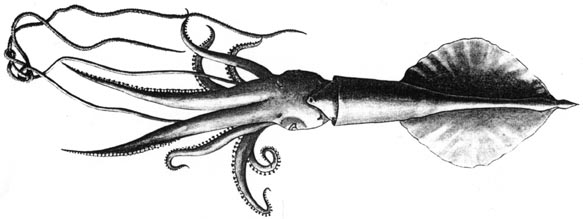
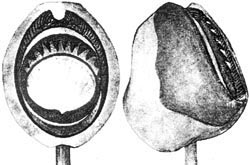

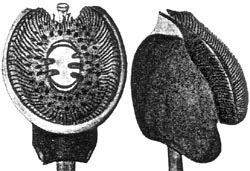
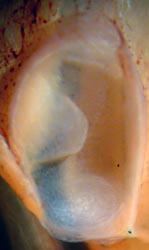
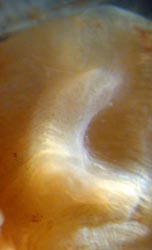
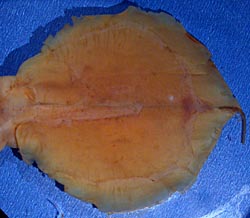

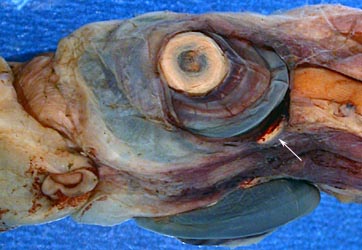

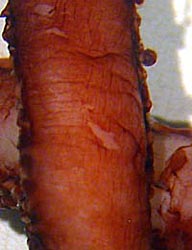



 Go to quick links
Go to quick search
Go to navigation for this section of the ToL site
Go to detailed links for the ToL site
Go to quick links
Go to quick search
Go to navigation for this section of the ToL site
Go to detailed links for the ToL site